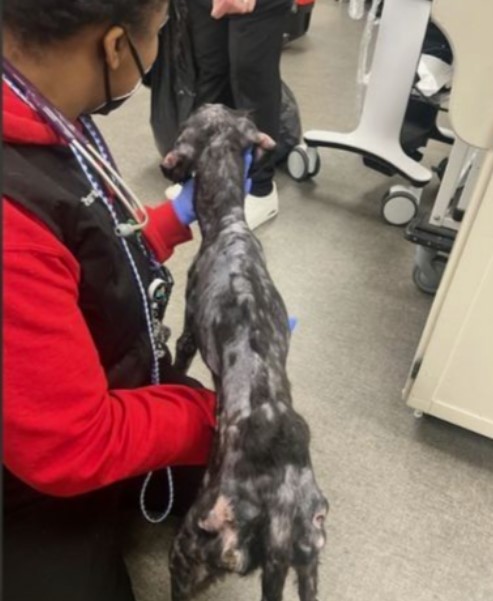Residents of Flatbush, Brooklyn, are reportedly raising concerns about a local dog trainer, Corey Harden, following allegations of animal mistreatment in the neighborhood. Eyewitness accounts and video footage provided to local media allegedly depict Harden engaging in troubling behavior, including striking a leash at a dog and appearing to kick another. The alleged incidents, which some residents claim occurred in the courtyard of Harden’s apartment building, have led to public outcry and calls for further scrutiny.
One neighbor, who requested anonymity, described distressing observations, stating, “Sometimes I hear squealing, and sometimes he might whip them and say, ‘Oh, you want to fight me? You want to fight me?’” The neighbor also claimed that the persistent stench of dog feces has created an unbearable living environment throughout the year.
Adding to the controversy, a review on the online platform Yelp apparently details an incident involving Harden, in which a user claimed that their seven-month-old puppy sustained a serious eye injury after allegedly being struck by the trainer. The reviewer further alleged that Harden initially offered to cover veterinary expenses but has not followed through.
Harden, who promotes himself as an animal lover and operates a website advertising dog walking and boarding services, has faced scrutiny regarding his practices. City records reportedly indicate that 31 complaints have been filed against him over the last five years, with 17 of those complaints allegedly related to accusations of animal mistreatment.
When approached for comment, Harden denied all allegations and defended his reputation as a trainer. “I’ve been doing this for 30 years; I love these animals. I don’t even know what the definition of torture would be to an animal,” he stated. He also introduced a client who spoke positively about his services.
The New York City Police Department has reportedly confirmed that officers have responded to all 31 complaints against Harden. In multiple instances, officials noted that reported conditions had either improved or were not substantiated at the time of inspection. However, the New York City Health Department is now conducting an investigation into allegations that Harden has been operating a boarding service out of his apartment without the necessary license.
As accusations remain unresolved, members of the community are increasingly demanding accountability. The allegations, coupled with the reportedly distressing video evidence, have raised broader concerns about the oversight of individuals who present themselves as animal caregivers in Brooklyn neighborhoods.
The situation continues to develop as residents push for greater protections to ensure the safety and well-being of animals in their community. Authorities have encouraged anyone with concerns about suspected mistreatment to report them through official channels.










